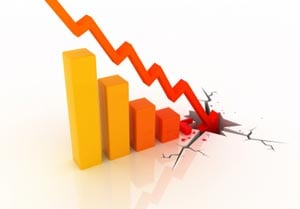The income prospects of retirement savers are not looking good as research reveals annuity payments have slumped in 15 out of the last 18 years.
In 2012, when 65-year-old men retiring picked up 11.5% less income than the year before, according to independent investment research firm Moneyfacts – the biggest fall since 1998.
Woman fared a little better after the start of the European Union’s gender neutral pricing policy, which saw their annuities drop by 6.1%.
Annuities for women have dropped in value by 50% in the last 18 years – while men’s have decreased by 56%.
A Moneyfacts spokesman said: “The move to gender pricing has led to most annuity providers having to review their annuities and we believe that the full impact of the new law has yet to make itself felt.
Gender pricing hits annuities
“In addition, we are seeing record low gilt yields being fuelled by more quantitative easing and there is also uncertainty about the Eurozone.
“It’s still early days for the annuities pricing model and providers are still looking at adjusting their rates in the early part of 2013 to drop into the strategic pricing positions where were favoured before gender neutralisation.”
Since the new ruling was introduced in December 21, 2012, insurers have had to charge the same price for insurance products regardless of gender.
The result has seen women receive higher annuities, despite statistics showing they generally live longer, which had pushed down their returns.
Men were used to picking up higher annuities because they didn’t live as long, but now their yield has dropped to be on a par following the directive
Pensions undercut by inflation
Pension experts say that everyone who is due to retire is urged to shop around for the best rate – and not to just accept a deal offered by the pension pot holder.
The Moneyfacts spokesman explained: “Men should definitely shop around to find the best rate available. Women, who are obviously in a much better position than they were, should also compare annuity rates.
“The reason is that income amounts from annuities vary between insurers.”
Another serious issue for pensioners is that while the official inflation rate runs at 2.7% and annuity rates return between 2% and 3% before tax, in real terms pension income is not keep pacing with price increases.
Dr Ros Altmann, director-general of Saga and a former government pension adviser, said: “The idea of linking pensions to an inflation index is to safeguard income against rising prices. If you manipulate the index, then retirement savers lose that safety net.”
